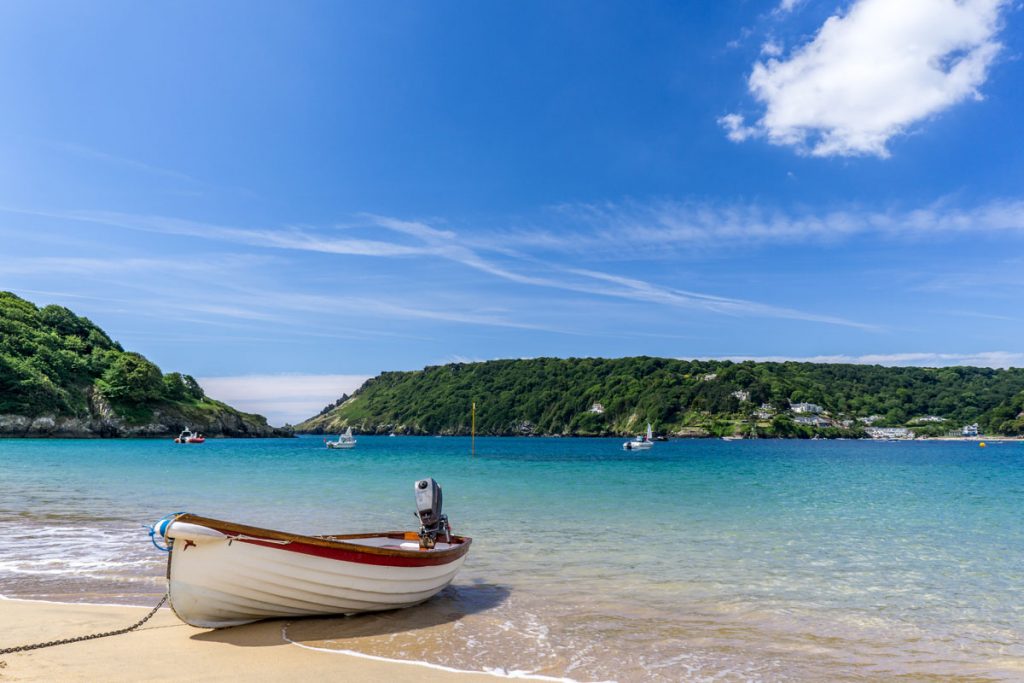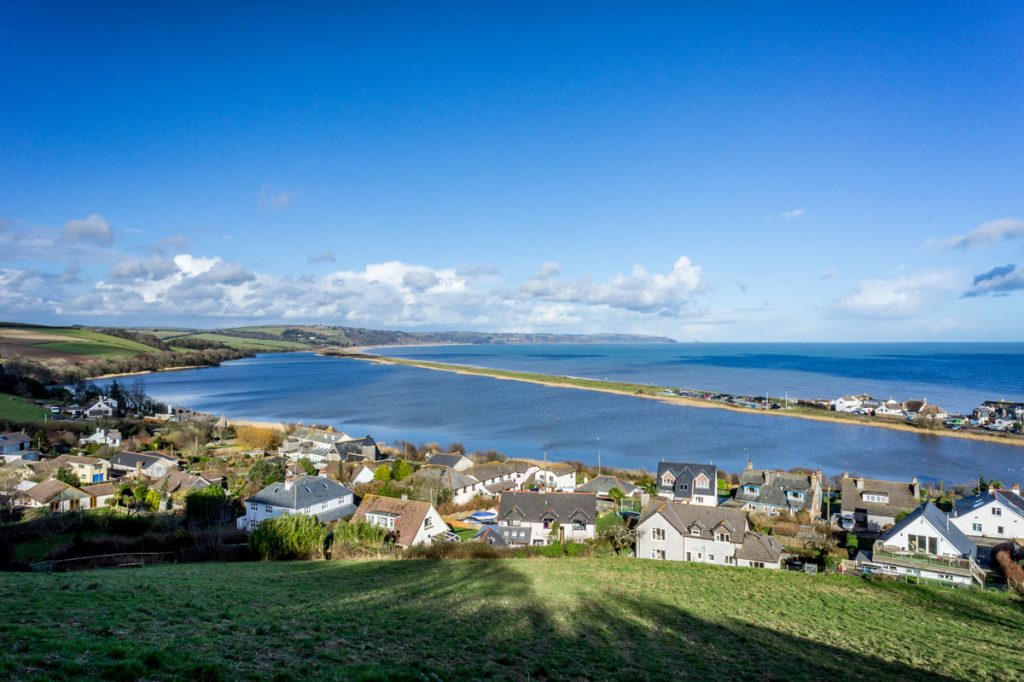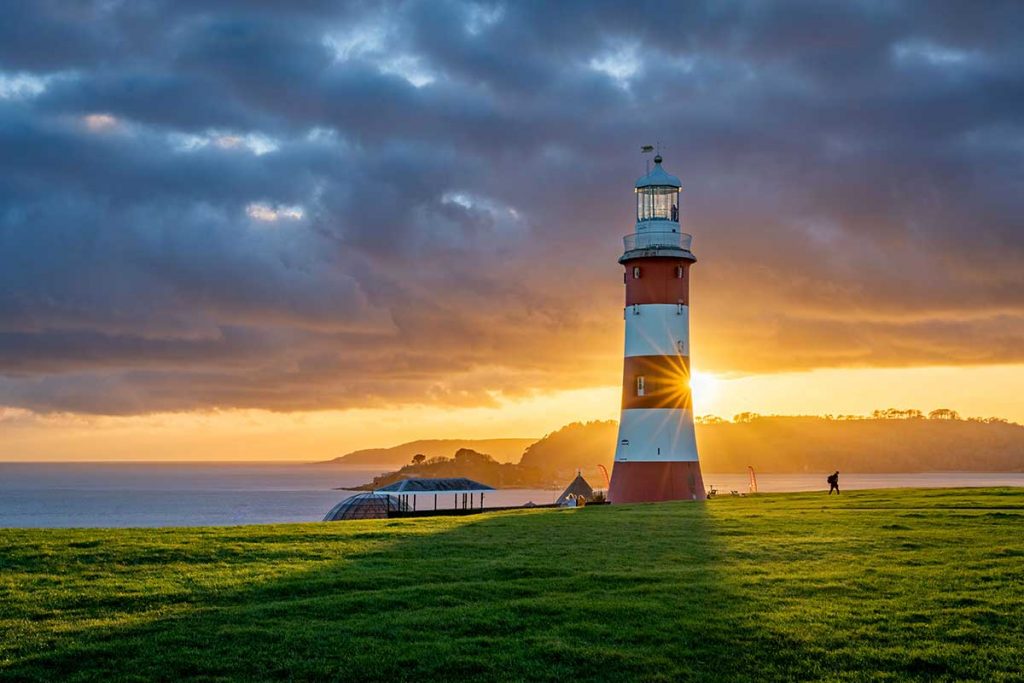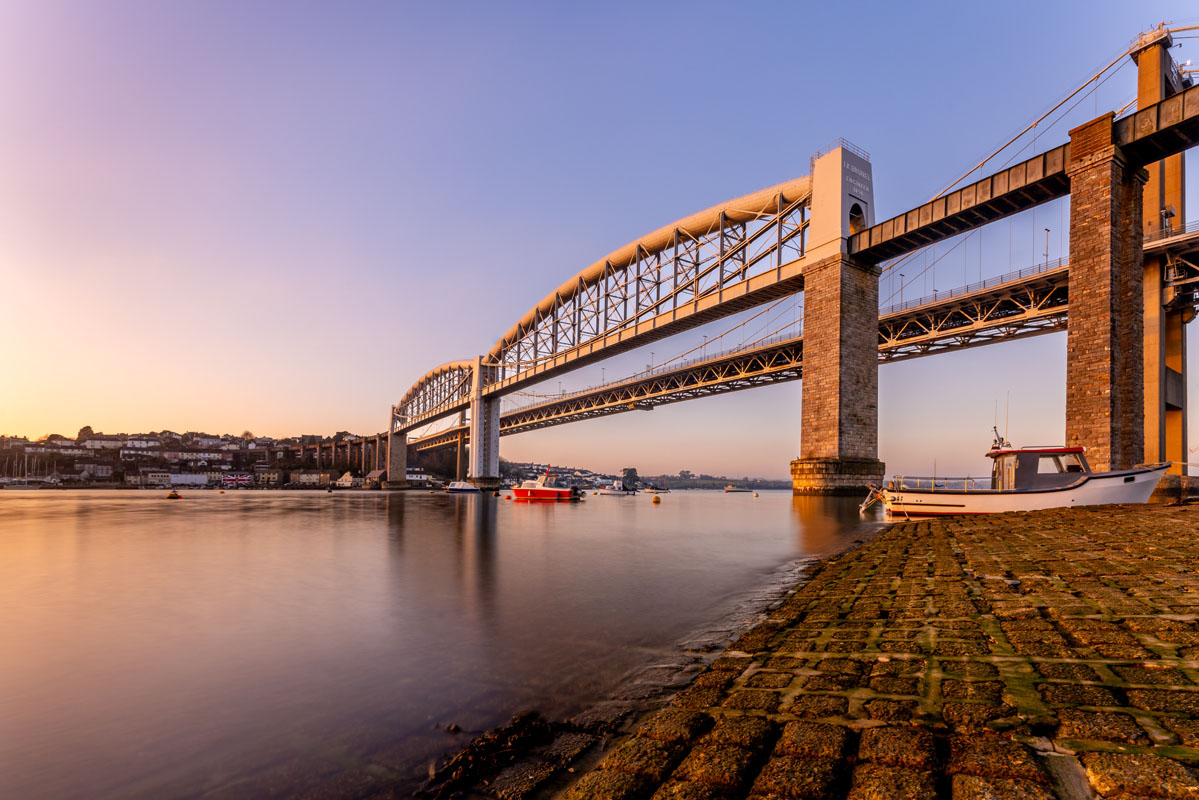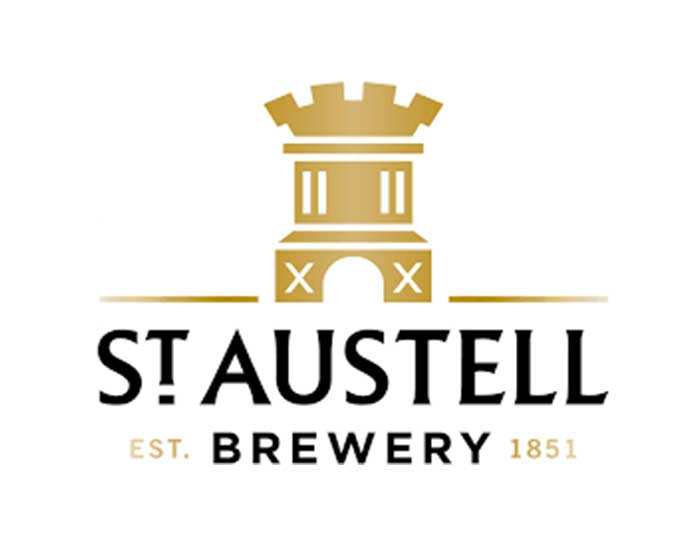Route Highlight
Burgh Island
This 26-acre lump of grassy rock houses an old whitewashed smugglers pub and a natural seawater bathing pool – but what makes it famous is the landmark art deco hotel. In its 1930s heyday aristocracy and wealthy celebrities danced the Charleston to big bands playing on floating pontoons. Sipping cocktails under the Palm Court Bar’s stained glass dome is one of South Devon’s most memorable experiences. Period costume is optional.
During your trip
Other Route Highlights
Salcombe
Probably the biggest tourist lure in the South Hams, Salcombe is not really a beach resort at all. The narrow steep streets of this small fishing village first turned into a boating haven, then have become an overall up-market seaside holiday centre.
Slapton Sands
It’s easy to see this wonderful geographical oddity by driving between Slapton and Torcross. The A379 runs right along the three-mile narrow pebble bar separating the sea and a long freshwater lake called ‘The Ley’.
Plymouth
The biggest city on the SW660 sits in a world-class location between Dartmoor and the islands and inlets of Plymouth Sound, with the lush twists of the Tamar Valley alongside. Many are initially disappointed by a city hastily rebuilt after wartime bombs and it attracts fewer tourists than some villages.
Around Plymouth
Outside the city various leafy inlets of the Sound and River Tamar are worth exploring for the views and for a huge collection of stately homes and gardens. They include Mount Edgcumbe, Saltram House, Antony House, Buckland Abbey and Cotehele.

